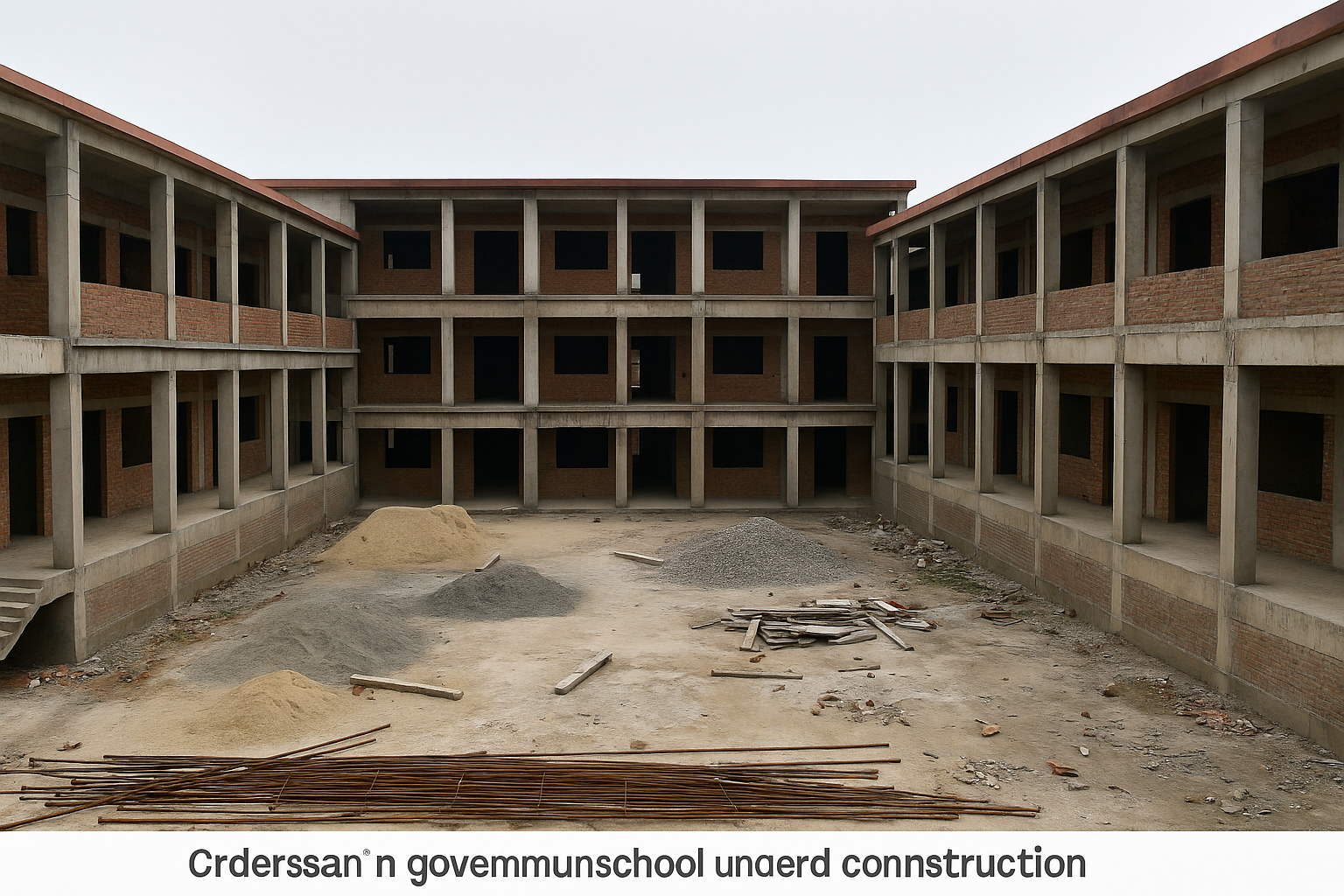Fresh Trouble for AAP as ED Targets Alleged Money Laundering in ₹1,300-Crore Government School Project
In a major development that has sent shockwaves through Delhi’s political and educational circles, the Enforcement Directorate (ED) on June 17 raided 37 locations across the national capital as part of a widening probe into the alleged classroom construction scam. The case traces back to large-scale construction projects initiated under the Aam Aadmi Party (AAP) government between 2015 and 2017, during the tenure of then Education Minister Manish Sisodia.
What the ED Is Investigating
The ED’s money laundering probe stems from a CBI FIR that raised serious red flags over the way classrooms were constructed in government schools across Delhi. Investigators suspect massive irregularities in tenders, inflated costs, and questionable financial transactions involving private contractors and officials.
The CBI had earlier pegged the loss to the exchequer at around ₹200 crore, pointing to:
- Use of unauthorized vendors
- Inflated construction costs
- Tenders allegedly issued in violation of procurement norms
- Duplicate or fake bills and non-existent work orders
The overall value of the construction contracts under scrutiny is believed to be over ₹1,300 crore.
Where the Raids Happened
According to officials, the raids were carried out at locations linked to:
- Contractors involved in the construction
- Architectural and consultancy firms
- Former government officials connected to the projects
- Residences and offices of vendors who allegedly benefited unlawfully
These raids come just months after ED intensified its probe into other corruption-linked cases tied to the AAP government, including the Delhi liquor policy case.
Political Fallout and AAP’s Reaction
The Aam Aadmi Party has strongly refuted all allegations, calling the raids an extension of a political vendetta. AAP spokespersons emphasized that the Delhi government’s education reforms—often hailed as a success model—are being targeted deliberately to derail public trust.
In an official statement, AAP said:
“These are politically motivated actions intended to discredit our revolutionary work in education. The BJP-led central agencies are twisting data and facts for vendetta politics.”
Background: Why This Case Matters
The Delhi government has long showcased its education model as a pillar of its governance, earning praise both nationally and globally. But the classroom construction project—intended to modernize infrastructure in Delhi’s government schools—is now under intense scrutiny over allegations that:
- Projects were over-billed
- Basic public works norms were ignored
- Multiple bills were created for the same work
- Financial records were fudged to benefit select vendors
The case adds to a growing list of corruption probes involving high-ranking AAP leaders and has the potential to impact public perception ahead of upcoming civic and state elections.
What Happens Next
With the ED widening its investigation and targeting those involved in the financial handling of the school construction projects, sources say further arrests or chargesheets could follow. The central agency is now examining fund trails and bank transactions of those linked to the tendering and execution process.
Meanwhile, political observers warn that the impact of this case could ripple across Delhi’s governance narrative, particularly given the emotional and political significance of the government’s education reforms.
FAQs
Q1: What is the Delhi classroom construction scam about?
The scam involves alleged corruption in classroom construction projects under the AAP government from 2015–2017. Authorities suspect inflated costs, fake tenders, and money laundering involving private vendors and public officials.
Q2: Why did the ED raid 37 locations?
The Enforcement Directorate raided locations tied to contractors, consultants, and former officials allegedly linked to financial irregularities in ₹1,300 crore worth of construction work.
Q3: What are the main allegations in the case?
Allegations include over-billing, use of unauthorized vendors, duplicate work orders, and misuse of public funds. The CBI earlier flagged potential losses of ₹200 crore.
Q4: How has the AAP responded to the raids?
AAP has called the raids politically motivated, accusing central agencies of targeting the party’s education reforms to tarnish its image ahead of elections.
Q5: What could happen next in the investigation?
The ED is analyzing financial records and bank trails, and further arrests or legal action could follow based on the evidence collected during the raids.

